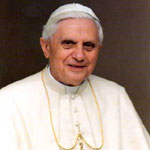Episode 8 – Communion with Christ – Practical Prayer – The “wellsprings” 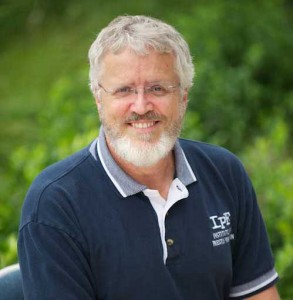  where Christ awaits us.  Responding at the moment when the subtle interior movements of the Holy Spirit calls to us.  The Word of God becomes a place of encounter. The danger of  Scripture  becoming all academic. People are converted when the Word approaches them as living.  The liturgy is also a place of encounter.  The heart as an “altar” in the liturgy.
 where Christ awaits us.  Responding at the moment when the subtle interior movements of the Holy Spirit calls to us.  The Word of God becomes a place of encounter. The danger of  Scripture  becoming all academic. People are converted when the Word approaches them as living.  The liturgy is also a place of encounter.  The heart as an “altar” in the liturgy.
[powerpress]
Deacon James Keating, PhD, the director of Theological Formation for the Institute for Priestly Formation, located at Creighton University, in Omaha.
 From the Catechism of the Catholic Church paragraph 2652 and 2655
From the Catechism of the Catholic Church paragraph 2652 and 2655
2652 The Holy Spirit is the living water “welling up to eternal life”3Â in the heart that prays. It is he who teaches us to accept it at its source: Christ. Indeed in the Christian life there are several wellsprings where Christ awaits us to enable us to drink of the Holy Spirit.
2655 In the sacramental liturgy of the Church, the mission of Christ and of the Holy Spirit proclaims, makes present, and communicates the mystery of salvation, which is continued in the heart that prays. the spiritual writers sometimes compare the heart to an altar. Prayer internalizes and assimilates the liturgy during and after its celebration. Even when it is lived out “in secret,”6Â prayer is always prayer of the Church; it is a communion with the Holy Trinity.7
For more information on the “Institute of Priestly Formation†and for other material available by Deacon Keating, just click here
Don’t forget to pickup a copy of “Communion with Christ†, it is one of the best audio sets on prayer…ever!
Check out Deacon Keating’s “Discerning Heart†page
Tags: catholic, catholic podcast, catholic prayer, cathollc spirituality, creighton university, institute for priestly formation, liturgy, mass, prayer, scripture
This entry was posted on Thursday, December 22nd, 2011 at 7:36 am
You can follow any responses to this entry through the RSS 2.0 feed.
[powerpress]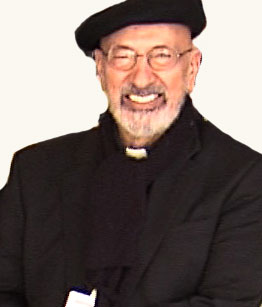 Msgr. Esseff reflects on Mary’s “yes” to the Archangel Gabriel. He also talks about the violent events in Egypt, Syria and other parts of the Middle East, as well as the tragedy of
Msgr. Esseff reflects on Mary’s “yes” to the Archangel Gabriel. He also talks about the violent events in Egypt, Syria and other parts of the Middle East, as well as the tragedy of  the typhoon in the Philippines. He shares his personal experience of being in Peru during the May 1970 earthquake, and how God taught him a very important lesson about how God brings about a greater good.
the typhoon in the Philippines. He shares his personal experience of being in Peru during the May 1970 earthquake, and how God taught him a very important lesson about how God brings about a greater good.
Msgr. Esseff also talks about the importance of doing God’s will…to love in Truth. How do we know what is authentic love? And he offers a teaching on the angels, in particular, the Guardian Angels.
Be sure to visit Msgr. Esseff’s website: Â Building A Kingdom of Love
Tags: blessed virgin may, catholic, catholic podcast, catholic prayer, cathollc spirituality, msgr. john esseff
This entry was posted on Wednesday, December 21st, 2011 at 8:58 am
You can follow any responses to this entry through the RSS 2.0 feed.
Episode 7 – Communion with Christ – Practical Prayer –  The will to pray.  To listen, to search, to see Him…to become prayer ourselves.  You know are progressing by the fruit of your life.  The parish as the “school of prayer”  The pastor as teacher of prayer, the spiritual father.  The disordered demands we may place on the priest.  What is the remedy?
The will to pray. Â To listen, to search, to see Him…to become prayer ourselves. Â You know are progressing by the fruit of your life. Â The parish as the “school of prayer” Â The pastor as teacher of prayer, the spiritual father. Â The disordered demands we may place on the priest. Â What is the remedy?
[powerpress]
Deacon James Keating, PhD, the director of Theological Formation for the Institute for Priestly Formation, located at Creighton University, in Omaha.
 From the Catechism of the Catholic Church paragraph 2650and 2651
From the Catechism of the Catholic Church paragraph 2650and 2651
2650 Prayer cannot be reduced to the spontaneous outpouring of interior impulse: in order to pray, one must have the will to pray. Nor is it enough to know what the Scriptures reveal about prayer: one must also learn how to pray. Through a living transmission (Sacred Tradition) within “the believing and praying Church,”1Â The Holy Spirit teaches the children of God how to pray.
2651 The tradition of Christian prayer is one of the ways in which the tradition of faith takes shape and grows, especially through the contemplation and study of believers who treasure in their hearts the events and words of the economy of salvation, and through their profound grasp of the spiritual realities they experience.2
For more information on the “Institute of Priestly Formation†and for other material available by Deacon Keating, just click here
Don’t forget to pickup a copy of “Communion with Christ†, it is one of the best audio sets on prayer…ever!
Check out Deacon Keating’s “Discerning Heart†page
Tags: catholic, catholic podcast, catholic prayer, cathollc spirituality, creighton university, Deacon Keating, institute for priestly formation, james keating, theological formation
This entry was posted on Saturday, December 17th, 2011 at 8:43 am
You can follow any responses to this entry through the RSS 2.0 feed.
VATICAN CITY, 14 DEC 2011 (VIS) –
In his general audience this morning, the Holy Father dedicated his catechesis to Jesus’ prayer in the context of His healing miracles, focusing particularly on the healing of the deaf man as narrated in the Gospel of St. Mark, and the raising of Lazarus.
The healing of the deaf man “demonstrates that the cures worked by Jesus were connected with the intensity of His relationships, both with others and with the Father”, the Pope said. “With a gesture the Lord touches the sick man’s ears and tongue; that is, the sites of his infirmity. … But the central point of the episode lies in the fact that Jesus, at the very moment He works the cure, directly seeks
His relationship with the Father”, by looking up to heaven. “The narrative shows, then, that human involvement with the sick man led Jesus into prayer. His unique relationship with the Father emerges once again, His identity as Only-begotten Son. In Him, through His person, the healing and beneficial action of God is made present among us”.
The raising of Lazarus also highlights this aspect of Jesus’ dual relationships, His concern for a suffering friend and His filial bond with the Father. “His sincere affection for His friend … is expressed by the fact that Jesus was deeply moved at the sight of the suffering of Martha and Mary, and of all Lazarus’ friends, and in His profoundly human tears as he approaches the grave”, the Pope explained. At the same time, Christ interprets His friend’s death “in relation to His own identity and mission, and the glorification awaiting Him. When He hears news of Lazarus sickness, He says: ‘this illness does not lead to death: rather it is for God’s glory, so that the Son of God may be glorified through it'”.
“The moment when Jesus prays directly to the Father before the tomb is the natural climax of the entire episode”. According to John the Evangelist “Jesus looked upward and said, Father I thank you for having heard me”. This phrase, Benedict XVI explained, “shows us that Jesus had not for a moment ceased His prayer for Lazarus’ life. That prayer was continuous, indeed it strengthened Jesus’ bond with His friend and, at the same time, confirmed His decision to remain in communion with the will of the Father, with His plan of love in which the sickness and death of Lazarus is the place in which the glory of God is made manifest”.
Trusting in God’s will
These episodes, said the Holy Father, help us to understand “that when we ask the Lord for something in prayer, we must not expect an immediate fulfilment of our requests, of our will; rather, we should entrust outsides to the will of the Father, reading events in the perspective of His glory, of His plan of love which is often a mystery to our eyes. Thus in our prayer, request, praise and thanksgiving should fuse together, even when it seems to us that God does not respond to our expectations. Abandoning ourselves to the love of God, which always precedes and accompanies us, is a fundamental principle in our dialogue with Him. … Beyond anything that God may give us when we invoke Him, the greatest gift He can give us is His friendship, His presence, His love”. The
giver is more precious than the gift.
“The concern Jesus, true God and true man, feels for others, especially the needy and suffering, … causes Him to turn to the Father. … But the opposite is also true: communion with the Father, constant dialogue with Him, causes Jesus to be attentive to the real-life situations of man, to which He brings the consolation and love of God”.
This profound bond between love for God and love for others must, the Pope concluded, also be part of our own prayers, which “open the door to God, teaching us how to abandon our own selves in order to come close to others, especially in moments of trial, bringing them consolation, hope and light”.
At the end of his catechesis the Holy Father spoke in various languages to greet the more than 7,000 pilgrims gathered in the Paul VI Hall. He expressed his particular appreciation to the people who had contributed to the restoration of the sculpture of “The Resurrection” by Pericle Fazzini, which adorns the Hall. “Following a period of painstaking efforts”, he said, “today we have the joy of being able to admire this work of art and faith in all its original splendour”.
Speaking then in Spanish, Benedict XVI addressed a delegation from the Mexican state of Puebla, expressing the hope that, “with God’s help, I will soon be able to visit you in your country”.
Tags: catholic, catholic podcast, catholic prayer, cathollc spirituality, pope benedict xvi, prayer
This entry was posted on Wednesday, December 14th, 2011 at 7:42 am
You can follow any responses to this entry through the RSS 2.0 feed.
Episode 6- Communion with Christ – Practical Prayer –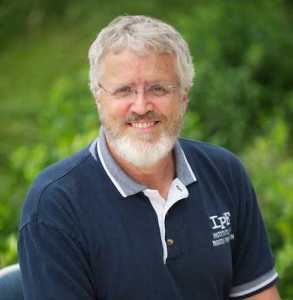 How we receive prayer.  The reception of grace and the great gift of memory. “Ask…seek…knock “.  Through prayer, heaven begins. Prayer is a battle…it isn’t easy.  Western culture is a “culture of distraction”.  We need to receive the coming of God when it enlights upon us.
How we receive prayer.  The reception of grace and the great gift of memory. “Ask…seek…knock “.  Through prayer, heaven begins. Prayer is a battle…it isn’t easy.  Western culture is a “culture of distraction”.  We need to receive the coming of God when it enlights upon us.
[powerpress]
Deacon James Keating, PhD, the director of Theological Formation for the Institute for Priestly Formation, located at Creighton University, in Omaha.
 From the Catechism of the Catholic Church paragraph 2610and 2611
From the Catechism of the Catholic Church paragraph 2610and 2611
2610 Just as Jesus prays to the Father and gives thanks before receiving his gifts, so he teaches us filial boldness: “Whatever you ask in prayer, believe that you receive it, and you will.”66Â Such is the power of prayer and of faith that does not doubt: “all things are possible to him who believes.”67Â Jesus is as saddened by the “lack of faith” of his own neighbors and the “little faith” of his own disciples68Â as he is struck with admiration at the great faith of the Roman centurion and the Canaanite woman.69
2611 The prayer of faith consists not only in saying “Lord, Lord,” but in disposing the heart to do the will of the Father.70Â Jesus calls his disciples to bring into their prayer this concern for cooperating with the divine plan.71
2612 In Jesus “the Kingdom of God is at hand.”72Â He calls his hearers to conversion and faith, but also to watchfulness. In prayer the disciple keeps watch, attentive to Him Who Is and Him Who Comes, in memory of his first coming in the lowliness of the flesh, and in the hope of his second coming in glory.73Â In communion with their Master, the disciples’ prayer is a battle; only by keeping watch in prayer can one avoid falling into temptation.74
For more information on the “Institute of Priestly Formation†and for other material available by Deacon Keating, just click here
Don’t forget to pickup a copy of “Communion with Christ†, it is one of the best audio sets on prayer…ever!
Check out Deacon Keating’s “Discerning Heart†page
Tags: catholic, catholic podcast, catholic prayer, cathollc spirituality, creighton university, Deacon James Keating, Deacon Keating, institute for priestly formation, institute of priestly formation, james keating, prayer, theological formation
This entry was posted on Saturday, December 10th, 2011 at 1:43 am
You can follow any responses to this entry through the RSS 2.0 feed.
Episode 5- Communion with Christ – Practical Prayer –  ” How did I ever live without prayer?” 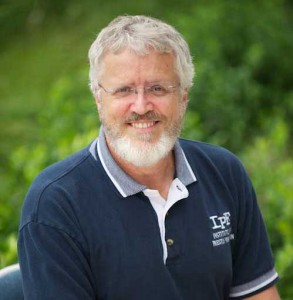  A sustained communion with Christ is the beginning of heaven.  “Ask..seek…knock”.  Are you knocking to receive a relationship or are you knocking to get more stuff?  Are you seeking to surrender and entrust or are you seeking to satisfy more of a passing  desire or mood?  Even in our coming to prayer Jesus wants to purify our motive for doing so.  The challenge of entering into deep prayer which leads to the great maturity of prayer.
 A sustained communion with Christ is the beginning of heaven.  “Ask..seek…knock”.  Are you knocking to receive a relationship or are you knocking to get more stuff?  Are you seeking to surrender and entrust or are you seeking to satisfy more of a passing  desire or mood?  Even in our coming to prayer Jesus wants to purify our motive for doing so.  The challenge of entering into deep prayer which leads to the great maturity of prayer.
[powerpress]
Deacon James Keating, PhD, the director of Theological Formation for the Institute for Priestly Formation, located at Creighton University, in Omaha.
 From the Catechism of the Catholic Church paragraph 2608 and 2609
From the Catechism of the Catholic Church paragraph 2608 and 2609
2608 From the Sermon on the Mount onwards, Jesus insists on conversion of heart: reconciliation with one’s brother before presenting an offering on the altar, love of enemies, and prayer for persecutors, prayer to the Father in secret, not heaping up empty phrases, prayerful forgiveness from the depths of the heart, purity of heart, and seeking the Kingdom before all else.64Â This filial conversion is entirely directed to the Father.
2609 Once committed to conversion, the heart learns to pray in faith. Faith is a filial adherence to God beyond what we feel and understand. It is possible because the beloved Son gives us access to the Father. He can ask us to “seek” and to “knock,” since he himself is the door and the way.65
For more information on the “Institute of Priestly Formation†and for other material available by Deacon Keating, just click here
Don’t forget to pickup a copy of “Communion with Christ†, it is one of the best audio sets on prayer…ever!
Check out Deacon Keating’s “Discerning Heart†page
Tags: catholic, catholic podcast, catholic prayer, cathollc spirituality, creighton university, Deacon Keating, institute for priestly formation, james keating, prayer, prayer Jesus, theological formation
This entry was posted on Thursday, December 1st, 2011 at 6:29 am
You can follow any responses to this entry through the RSS 2.0 feed.
VATICAN CITY, 30 NOV 2011 (VIS) – This morning’s general audience was celebrated in the Paul VI Hall in the presence of 5,500 faithful. Having recently completed a series of catecheses dedicated to prayer in the Old Testament, the Pope today began a new cycle on the subject of the prayer of Christ which, he said, was “like a hidden canal irrigating His life, relationships and actions, and guiding Him with increasing firmness to the total gift of self, in keeping with the loving plan of God the Father”.
One particularly significant moment of prayer followed the Baptism of Jesus in the Jordan. This, the Pope noted, poses a query as to why Jesus, Who was without sin, should have chosen to submit Himself to John’s Baptism of penance and conversion. John the Baptist himself raised the question, saying “I need to be baptised by you, and do you come to me?”. The Holy Father explained how “by emerging Himself in the Jordan River, Jesus … expressed His solidarity with people who recognise their sins, who chose to repent and change their lives. He helps us to understand that being part of the people of God means entering into a new life, a life in conformity with God. By this gesture Jesus anticipated the cross, beginning His active life by taking the place of sinners, bearing the weight of the sin of all humankind on His shoulders”.
By praying after His Baptism, Jesus demonstrates His intimate bond with the Father, “experiencing His paternity and apprehending the demanding beauty of His love. Speaking to God, Jesus receives confirmation of His mission”, with the words that resound from on high: “This is my son, the Beloved” and with the descent of the Holy Spirit upon Him. “Through prayer”, the Pope said, “Jesus lives in uninterrupted contact with the Father in order to achieve His project of love for mankind”. It is in this profound union with the Father that Jesus made the move for the hidden life of Nazareth to His public ministry. (more…)
Tags: catholic, catholic podcast, catholic prayer, cathollc spirituality, pope benedict xvi, prayer
This entry was posted on Wednesday, November 30th, 2011 at 7:49 am
You can follow any responses to this entry through the RSS 2.0 feed.
November 19, 2011. (Romereports.com) The pope visited a shelter that welcomes dozens of abandoned children, some of whom are sick or malnourished. It’s called “Peace and Joy,†and it’s run by the Missionaries of Charity in Benin.
Cotonou’s Archbishop and the Mother Superior welcomed the pope, while children sang and danced for Benedict XVI.
Another 800 people, many of them children, waited for the pope in the nearby church of St. Rita. There, the pope talked about the day of his First Communion.
Benedict XVI
“The day of my First Communion was one of the most beautiful days of my life.â€He also said that during Communion, one should be ready to “receive Jesus with love and attention.â€
Talking to others about God is also key, said the pope. He described it as a treasure that should be used generously. The pope then explained to children how he prays.
Benedict XVI
“I can also use the Gospels. That way, I keep within my heart a passage which has touched me and which will guide me throughout the day.â€When it comes to praying, the pope asked them to pray as a family. He also called on children to encourage their parents to pray together as a unit.
Benedict XVI
“Ask your parents to pray with you! Sometimes you may even have to push them a little. But do not hesitate to do so. God is that important.!†ÂThe pope also explained what a rosary is and how to pray it.
At the end of the gathering, the pope gave a rosary to each one of the children.
During the pope’s international trips he usually sets time aside to meet with underprivileged children.
Tags: benedict xvi, catholic, catholic podcast, catholic prayer, cathollc spirituality, pope, pope benedict xvi
This entry was posted on Saturday, November 19th, 2011 at 8:11 pm
You can follow any responses to this entry through the RSS 2.0 feed.
Episode 4- Communion with Christ – Practical Prayer –  Continued reflections on the last things said by Jesus on the Cross.   Mary as teacher of prayer…the wellspring of interiority, because she held all the mysteries in her heart. “I Thirst”….God’s longing for us.  Allowing God to pray in us.  “My God, My God, why have you forsaken me”…is it more that we have abandoned God?  Sin looks like crucifixion.  The final words.
 Mary as teacher of prayer…the wellspring of interiority, because she held all the mysteries in her heart. “I Thirst”….God’s longing for us.  Allowing God to pray in us.  “My God, My God, why have you forsaken me”…is it more that we have abandoned God?  Sin looks like crucifixion.  The final words.
[powerpress]
Deacon James Keating, PhD, the director of Theological Formation for the Institute for Priestly Formation, located at Creighton University, in Omaha.
 From the Catechism of the Catholic Church paragraph 2605
From the Catechism of the Catholic Church paragraph 2605
When the hour had come for him to fulfill the Father’s plan of love, Jesus allows a glimpse of the boundless depth of his filial prayer, not only before he freely delivered himself up (“Abba . . . not my will, but yours.”),53but even in his last words on the Cross, where prayer and the gift of self are but one: “Father, forgive them, for they know not what they do”,54 “Truly, I say to you, today you will be with me in Paradise”,55 “Woman, behold your son” – “Behold your mother”,56 “I thirst.”;57 “My God, My God, why have you forsaken me?”58 “It is finished”;59 “Father, into your hands I commit my spirit!”60 until the “loud cry” as he expires, giving up his spirit.61
For more information on the “Institute of Priestly Formation†and for other material available by Deacon Keating, just click here
Don’t forget to pickup a copy of “Communion with Christ†, it is one of the best audio sets on prayer…ever!
Check out Deacon Keating’s “Discerning Heart†page
Tags: catholic, catholic podcast, catholic prayer, cathollc spirituality, Deacon James Keating, Deacon Keating, institute for priestly formation, prayer, theological formation
This entry was posted on Saturday, November 19th, 2011 at 7:43 pm
You can follow any responses to this entry through the RSS 2.0 feed.
Episode 3- Communion with Christ – Practical Prayer –  Jesus is the primary teacher of prayer.   How can we pray “always”?  How do we become “prayer”?  Jesus was so conscious that all things flows from the Father, and teaches a rise in gratitude to the source of “all things”…and He teaches us how to pray to the Father.  Praying in the name of Jesus and the “receiving” of God in our hearts.
 How can we pray “always”?  How do we become “prayer”?  Jesus was so conscious that all things flows from the Father, and teaches a rise in gratitude to the source of “all things”…and He teaches us how to pray to the Father.  Praying in the name of Jesus and the “receiving” of God in our hearts.
[powerpress]
Deacon James Keating, PhD, the director of Theological Formation for the Institute for Priestly Formation, located at Creighton University, in Omaha.
 From the Catechism of the Catholic Church paragraph 2604
From the Catechism of the Catholic Church paragraph 2604
The second prayer, before the raising of Lazarus, is recorded by St. John.50Â Thanksgiving precedes the event: “Father, I thank you for having heard me,” which implies that the Father always hears his petitions. Jesus immediately adds: “I know that you always hear me,” which implies that Jesus, on his part, constantly made such petitions. Jesus’ prayer, characterized by thanksgiving, reveals to us how to ask: before the gift is given, Jesus commits himself to the One who in giving gives himself. the Giver is more precious than the gift; he is the “treasure”; in him abides his Son’s heart; the gift is given “as well.”51
For more information on the “Institute of Priestly Formation†and for other material available by Deacon Keating, just click here
Don’t forget to pickup a copy of “Communion with Christ†, it is one of the best audio sets on prayer…ever!
Check out Deacon Keating’s “Discerning Heart†page
Tags: catholic, catholic podcast, catholic prayer, cathollc spirituality, creighton university, Deacon Keating, institute for priestly formation, james keating, theological formation
This entry was posted on Friday, November 11th, 2011 at 7:04 am
You can follow any responses to this entry through the RSS 2.0 feed.
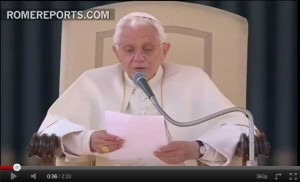 VATICAN CITY, 9 NOV 2011 (VIS) –
VATICAN CITY, 9 NOV 2011 (VIS) –
In his general audience this morning Benedict XVI focused his catechesis on Psalm 119, the longest of the Psalms, constructed as an acrostic in which each stanza begins with one of the twenty-two letters of the Hebrew alphabet. Its subject matter is “the Torah of the Lord; that is, His Law, a term which in its broadest and most complete definition comprehends teaching, instruction and life guidance. The Torah is revelation, it is the Word of God which is addressed to man and which arouses his response of faithful obedience and generous love”, the Pope said.
“The Psalmist’s faithfulness arises from listening to the Word, from keeping it in his heart, meditating upon it and loving it, like Mary who  ‘treasured in her heart’ the words addressed to her, the marvellous events in which God revealed Himself and asked for her response of faith”, he explained. The Psalmist describes those who walk in the Law of the Lord as blessed, and indeed “Mary is blessed because she bore the Saviour in her womb, but above all because she accepted God’s annunciation and treasured His Word attentively and lovingly”.
‘treasured in her heart’ the words addressed to her, the marvellous events in which God revealed Himself and asked for her response of faith”, he explained. The Psalmist describes those who walk in the Law of the Lord as blessed, and indeed “Mary is blessed because she bore the Saviour in her womb, but above all because she accepted God’s annunciation and treasured His Word attentively and lovingly”.
Psalm 119 is constructed around this Word of life and blessing. Its central theme is the Word and the Law, and its verses are replete with synonyms thereof such as “precepts, decrees, promises”, associated with verbs such as “to know, to love, to meditate, to live”, the Holy Father explained. “The entire alphabet features in the twenty-two verses of the Psalm, as does the entire vocabulary of the believer’s relationship of trust with God. We find praise, thanksgiving and trust, but also supplication and lamentation; however, all of them are pervaded by the certainty of divine grace and the power of the Word of God. Even those verses most marked by suffering and darkness remain open to hope and are permeated with faith”.
The Law of God, which is “the centre of life”, must be “listened to with obedience but not servility, with filial trust and awareness. To listen to the Word is to have a personal encounter with the Lord of life. … The fulfilment of the Law is to follow Jesus”. Thus Psalm 119 “guides us towards the Gospel”, the Pope explained.
listen to the Word is to have a personal encounter with the Lord of life. … The fulfilment of the Law is to follow Jesus”. Thus Psalm 119 “guides us towards the Gospel”, the Pope explained.
In this context he focused particularly on verse 57: “The Lord is my portion; I promise to keep your words”.
“The term ‘portion'”, he explained, “evokes the partition of the Promised Land among the tribes of Israel, when the Levites were given no part of the territory because their ‘portion’ was the Lord Himself. … These verses are also important for us today, especially for priests, who are called to live from the Lord and from His Word alone, with no other guarantees, no other wealth, and having Him as their one source of true life. It is in this light that we can understand the free choice of celibacy for the Kingdom of heaven, which must be rediscovered in all its beauty and power.
“These verses are also important for the faithful, the People of God who belong only to Him”, the Pope added in conclusion. “They are called to experience the radical nature of the Gospel, to be witnesses of the life brought by Christ, the new and definitive ‘High Priest’ Who offered Himself in sacrifice for the salvation of the world. The Lord and His Word are our ‘land’ in which to live in communion and joy”.
Tags: catholic, catholic podcast, catholic prayer, cathollc spirituality, pope benedict xvi, psalm 119
This entry was posted on Wednesday, November 9th, 2011 at 12:24 pm
You can follow any responses to this entry through the RSS 2.0 feed.
Episode 2-Communion with Christ – Practical Prayer –  We have lost are fear of going astray  and being unfaithful within.  We must be aware of the spirits, personal or impersonal, that can get into us.  We can get tangled up in many different  influences in prayer.  That is why it so important to have a director, a guide,  to help us navigate in this journey and to test those spirits.  Jesus is the model of prayer.  “He learns to pray from His mother”. (see below).   The witness of the community.  His prayer springs from a secret source and He wishes to share it with us.  All prayer is foretaste of heaven.
and being unfaithful within.  We must be aware of the spirits, personal or impersonal, that can get into us.  We can get tangled up in many different  influences in prayer.  That is why it so important to have a director, a guide,  to help us navigate in this journey and to test those spirits.  Jesus is the model of prayer.  “He learns to pray from His mother”. (see below).   The witness of the community.  His prayer springs from a secret source and He wishes to share it with us.  All prayer is foretaste of heaven.
[powerpress]
Deacon James Keating, PhD, the director of Theological Formation for the Institute for Priestly Formation, located at Creighton University, in Omaha.
 From the Catechism of the Catholic Church paragraph 2599
From the Catechism of the Catholic Church paragraph 2599
The Son of God who became Son of the Virgin learned to pray in his human heart. He learns to pray from his mother, who kept all the great things the Almighty had done and treasured them in her heart.41Â He learns to pray in the words and rhythms of the prayer of his people, in the synagogue at Nazareth and the Temple at Jerusalem. But his prayer springs from an otherwise secret source, as he intimates at the age of twelve: “I must be in my Father’s house.”42Â Here the newness of prayer in the fullness of time begins to be revealed: his filial prayer, which the Father awaits from his children, is finally going to be lived out by the only Son in his humanity, with and for men.
For more information on the “Institute of Priestly Formation†and for other material available by Deacon Keating, just click here
Don’t forget to pickup a copy of “Communion with Christ†, it is one of the best audio sets on prayer…ever!
Check out Deacon Keating’s “Discerning Heart†page
Tags: catholic, catholic podcast, catholic prayer, cathollc spirituality, Deacon James Keating, Deacon Keating, james keating, prayer, theological formation
This entry was posted on Thursday, November 3rd, 2011 at 11:20 am
You can follow any responses to this entry through the RSS 2.0 feed.
During his Angelus on Tuesday, Pope Benedict said “the Feast of All Saints is a good time to lift our gaze from the realities of the world… to the enormity of God, who encompasses all eternity and holiness. “
He said holiness is the vocation of all the baptized, and all the people of God are called to be saints.
The Pope then turned his thoughts to Wednesday’s commemoration of All Souls
[powerpress = “Vatican Radio”]
“From the early days of the Christian faith,†he said, “the Church on earth, recognizing the communion of the whole mystical body of Jesus Christ, has with great respect honored the memory of the dead and offered prayers for them.â€The Pope said “our prayers for the dead are not only useful, but necessary.â€
The Holy Father reminded the faithful to keep the bonds of affection with our loved ones who have died, not only through prayer, but also through actions like visiting cemeteries.
He said this reminds us all that we are meant for another life after death.
see more on the website for Vatican Radio
Tags: all saints, catholic, catholic podcast, catholic prayer, cathollc spirituality, pope benedict xvi, prayer, purgatory, vatican radio
This entry was posted on Tuesday, November 1st, 2011 at 2:42 pm
You can follow any responses to this entry through the RSS 2.0 feed.
Episode 1 -Communion with Christ – Practical Prayer –The most powerful principal of prayer is that God desires us.  Prayer is a response to a presence who has entered our reality. Distractions, an enemy of prayer. Recovering the prophetic consciousness.  The highest fruit of prayer to be someone who is so transparent to God, that  God reveals His acts in our lives…the person has become prayer.
Prayer is a response to a presence who has entered our reality. Distractions, an enemy of prayer. Recovering the prophetic consciousness.  The highest fruit of prayer to be someone who is so transparent to God, that  God reveals His acts in our lives…the person has become prayer.
[powerpress]
Deacon James Keating, PhD, the director of Theological Formation for the Institute for Priestly Formation, located at Creighton University, in Omaha.
 From the Catechism of the Catholic Church paragraph 2567
From the Catechism of the Catholic Church paragraph 2567
God calls man first. Man may forget his Creator or hide far from his face; he may run after idols or accuse the deity of having abandoned him; yet the living and true God tirelessly calls each person to that mysterious encounter known as prayer. In prayer, the faithful God’s initiative of love always comes first; our own first step is always a response. As God gradually reveals himself and reveals man to himself, prayer appears as a reciprocal call, a covenant drama. Through words and actions, this drama engages the heart. It unfolds throughout the whole history of salvation.
For more information on the “Institute of Priestly Formation†and for other material available by Deacon Keating, just click here
Don’t forget to pickup a copy of “Communion with Christ†, it is one of the best audio sets on prayer…ever!
Check out Deacon Keating’s “Discerning Heart†page
Tags: catechism of the catholic church, catholic, catholic podcast, catholic prayer, cathollc spirituality, Deacon James Keating, Deacon Keating, institute for priestly formation, james keating, old testament, prayer, prophet, theological formation
This entry was posted on Thursday, October 27th, 2011 at 7:18 am
You can follow any responses to this entry through the RSS 2.0 feed.
VATICAN CITY, 19 OCT 2011 (VIS) –
Some 20,000 pilgrims attended Benedict XVI’s general audience, which was held this morning in St. Peter’s Square. Continuing a series of catecheses dedicated to the Psalms, the Holy Father focused his attention on Psalm 136, “a great hymn of praise which celebrates the Lord in the many and repeated manifestations of His goodness down human history”.
The Pope explained how, in Jewish tradition, this Psalm is sung at the end of the Passover supper, and therefore it was probably also pronounced by Jesus at the last Passover He celebrated with His disciples. The text enumerates God’s many interventions in favour of His people “and each proclamation of a salvific action by the Lord is answered by an antiphon reiterating the main cause for praise: God’s eternal love, a love which, according to the Hebrew term used, implies faithfulness, mercy, goodness, grace and tenderness”.
God is first presented as “He Who ‘does great wonders’, first among them that of the creation: heaven, earth and stars. … With the creation the Lord shows Himself in all His goodness and beauty. He commits Himself to life, revealing a desire for good whence all other salvific actions arise”.
The Psalm goes on to consider God’s manifestations in history, evoking the great moment when the Israelites were freed from slavery in Egypt. The forty years of wandering in the desert were “a decisive period for Israel which, allowing itself to be guided by the Lord, learned to live on faith, obedient and docile to the laws of God. Those were difficult years, marked by the harshness of life in the desert, but also a happy time of confidence and filial trust in the Lord”.
“The history of Israel has known exhilarating moments of joy, of fullness of life, of awareness of the presence of God and His salvation”, said the Pope. “But it has also been marked by episodes of sin, painful periods of darkness and profound affliction. Many were the adversaries from whom the Lord liberated His people”. The Psalm speaks of these events, in particular the Babylonian exile and the destruction of Jerusalem, “when it seemed that Israel had lost everything, even its own identity, even its trust in the Lord. However, God remembers, and frees. The salvation of Israel and of all mankind is bound to the Lord’s faithfulness, to His memory. While man forgets easily, God remains faithful: His memory is a precious casket containing that ‘love which endures forever’ about which our Psalm speaks”.
The Psalm concludes by reminding us that God feeds His creatures, “caring for life and giving
bread. … In the fullness of time the Son of God became man to give life, for the salvation of each one of us; and He continues to gives Himself as bread in the mystery of the Eucharist, so as to draw us into His covenant, which makes us children. So great is God’s merciful goodness, the sublimity of His ‘love which endures forever'”. In conclusion the Pope read a quote from the First Letter of St. John, advising the faithful to bear it in mind in their prayers: “See what love the Father has given us, that that we should be called children of God; and that is what we are”.
AG/ VIS 20111019 (560)Â
raise the Lord, for he is good: for his mercy endures for ever.
2 Praise the God of gods: for his mercy endures for ever.Â
3 Praise the Lord of lords: for his mercy endures for ever.Â
4Â Who alone does great wonders: for his mercy endures for ever.Â
5 Who made the heavens in understanding: for his mercy endures for ever.
6Â Who established the earth above the waters: for his mercy endures for ever.
 7 Who made the great lights: for his mercy endures for ever.Â
8Â The sun to rule the day: for his mercy endures for ever.Â
9Â The moon and the stars to rule the night: for his mercy endures for ever.Â
10 Who smote Egypt with their firstborn: for his mercy endures for ever.Â
11 Who brought out Israel from among them: for his mercy endures for ever.Â
12Â With a mighty hand and with a stretched out arm: for his mercy endures for ever.Â
13 Who divided the Red Sea into parts: for his mercy endures for ever.
14 And brought out Israel through the midst thereof: for his mercy endures for ever.Â
15 And overthrew Pharao and his host in the Red Sea: for his mercy endures for ever.Â
16 Who led his people through the desert: for his mercy endures for ever.Â
17Â Who smote great kings: for his mercy endures for ever.Â
18Â And slew strong kings: for his mercy endures for ever.Â
19 Sehon king of the Amorrhites: for his mercy endures for ever.Â
20Â And Og king of Basan: for his mercy endures for ever.Â
21Â And he gave their land for an inheritance: for his mercy endures for ever.Â
22 For an inheritance to his servant Israel: for his mercy endures for ever.Â
23Â For he was mindful of us in our affliction: for his mercy endures for ever.
24 And he redeemed us from our enemies: for his mercy endures for ever.Â
25Â Who gives food to all flesh: for his mercy endures for ever.Â
26 Give glory to the God of heaven: for his mercy endures for ever. Give glory to the Lord of lords: for his mercy endures for ever.
Tags: catholic, catholic podcast, catholic prayer, cathollc spirituality, Israel, pope benedict, pope benedict xvi, prayer, psalm 136
This entry was posted on Wednesday, October 19th, 2011 at 4:02 pm
You can follow any responses to this entry through the RSS 2.0 feed.



